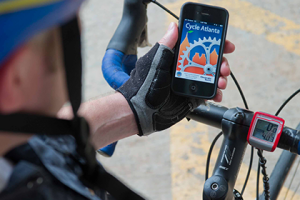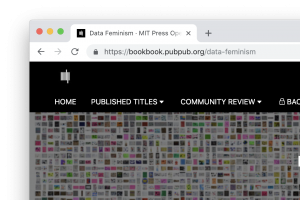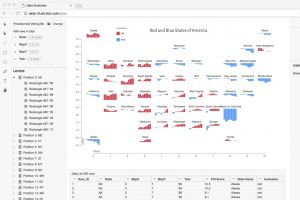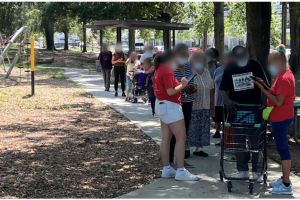|
The Public Lab for Open Science and Technology (Public Lab) is a civic science community of organizers and scientists democratizing environmental science by developing low cost DIY environmental monitoring tools. Public Lab facilitates collaboration and documentation of research through a community built website which allows community members to post wiki pages, research notes, activities, questions and answers, and events. This project investigates the relationship between the data these features cultivate and the cultivation of the community that produces that very data. |
CulturEat is an application that bridges the skilled home chefs or cooks with urban diners who are looking for authentic and affordable cultural meals. It gives the cooks the ability to upload their masterpieces and sell them to earn extra income while sharing cultural heritage/stories of the dish with diners. It helps to restructure the current societal food sharing system and promote positive cultural impacts on social cohesion via food. |
Fifty percent of all trips are 3 miles or less, yet only 1.8% of those trips are biked. Meanwhile, 35.7% of US adults are obese and the transportation sector accounts for 32% of US greenhouse gases. One of the main reasons citizens do not use the healthier mode of cycling is due to a lack of safe infrastructure‚ dedicated bicycle routes, roads with bicycle lanes, and other designated bicycle facilities. The City of Atlanta has a desire to put proper cycling infrastructure in place but needs better information from citizens about where they currently and would like to cycle.  |
An Interactive History of Data Visualization, 1786-1900  |
|
This project explores how community indicator data dashboards can be used as an infrastructure over which to build a community's data literacy. |
Understanding and visualizing pedestrian accidents on Buford Highway. |
Data feminism is a way of thinking about data science that is informed by the past several decades of feminist activism and critical thought.  |
Data Illustrator is a system that helps graphic designers created data-driven visualizations and infographics without the need to do any programming. More specifically, it is a vector editing tool for creating data visualizations and infographics. Graphic designers can use Data Illustrator to craft their own visualizations by repeating and styling shapes with data-driven rules. The tool supports the creation of expressive, flexible, and parametrically defined visualizations without the need to program them.  |
|
This research investigates how data infrastructures can be designed to meet the data equity and advocacy needs of marginalized communities. |
In our game, interactors will be trapped in a room where their data will be disclosed to the public if they are captured by the cameras. In order to avoid data exposure, interactors need to figure out ways to avoid cameras and escape from the room. |
This work reports on an 11 month-long collaboration with an organization resulting from institutional bricolage that has carefully designed tools and procedures for collecting data that enact an ethic of care. This caring data practice is characterized by defining success through relationships, attending to the social and cultural community context, and protecting vulnerable populations through non-collection. We share the organization’s practices, analyze how they support the organization in providing care, and offer recommendations for building caring data systems.  |
Examining the Data Security and Privacy (DSP) practices of Indian older adults with digital footprints |
|
We will explore stakeholder perspectives to understand data work in mental health AI research. |
Using the Z-wave protocol stack, we are building a controller for the Aware Home using a Raspberry Pi that will allow users to control and query device data on a dashboard. This collected data will then be used to predict usage patterns and serve tips for power saving. Finally, a user-friendly rules engine enables users to create certain rules using sensor data. |


